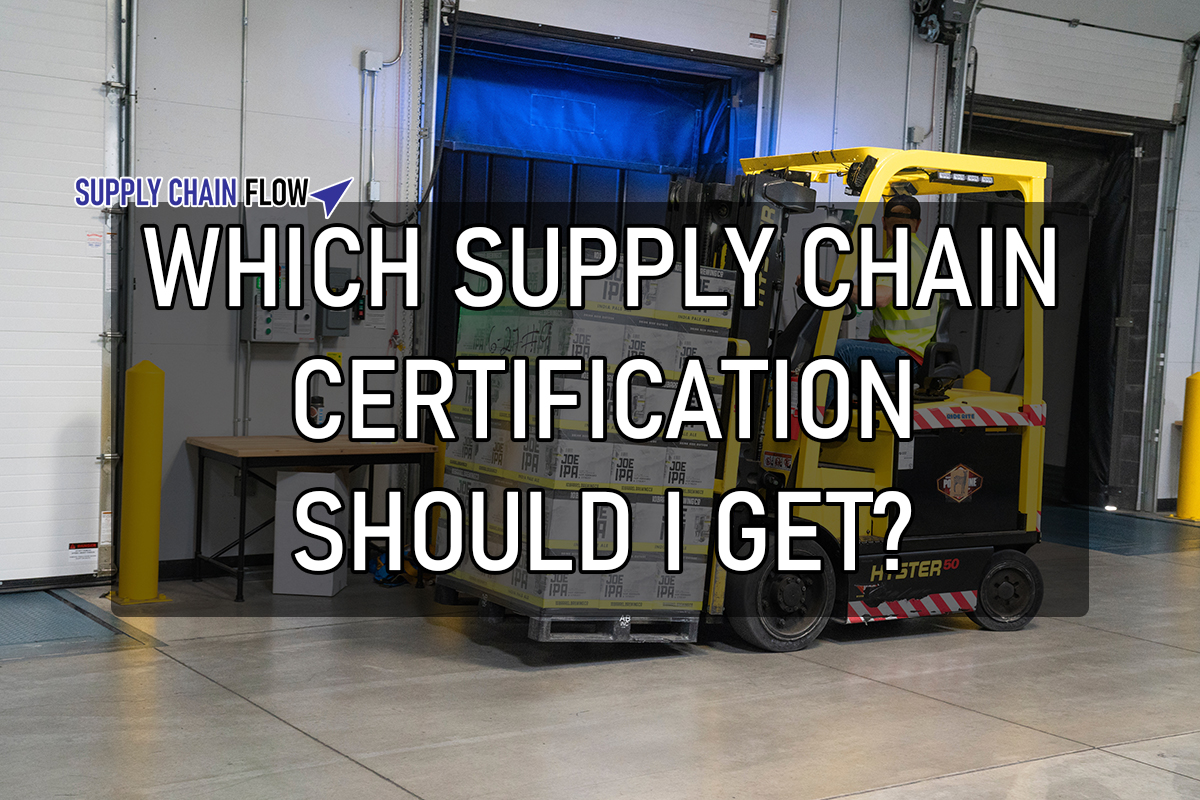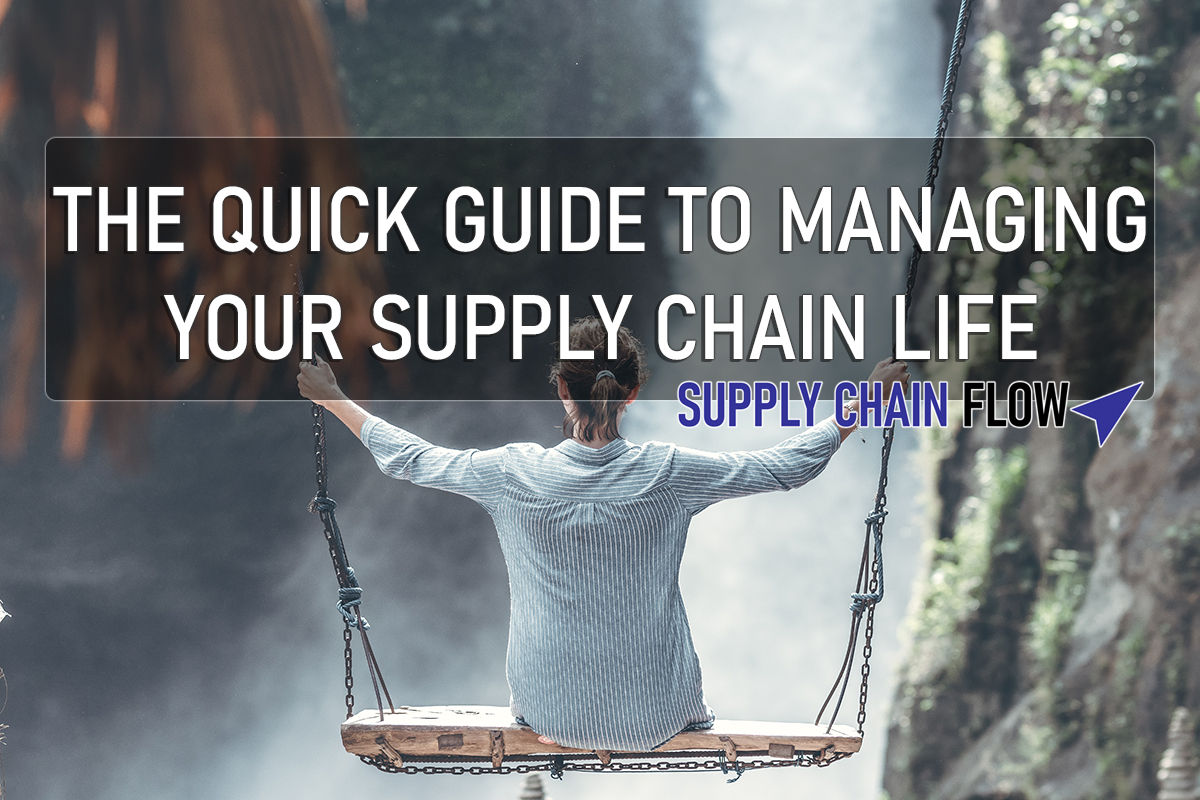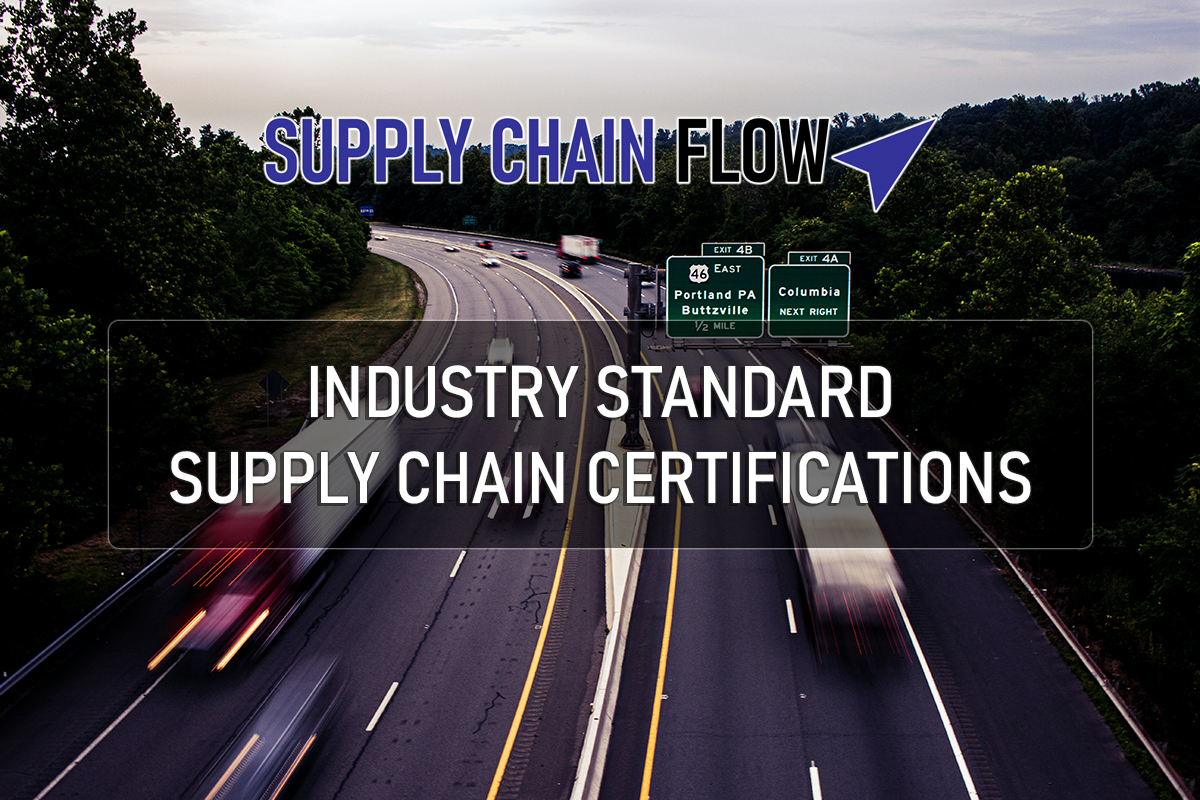
Which Supply Chain Certification Should I Get?
First off, I'd recommend a certification for anyone who is about 5 years or more into their Supply Chain career. It can be a fast way to leverage a certification into either a new position in supply chain, or a promotion inside or outside your current company.
Ideally, your current company will pay for the certification. Keep in mind you may need to cover the cost upfront. They should be reimbursing you within 30 days of paying for this. If that isn't an option for you, discuss this with your management and see if they can charge to a company card.
If you're looking to jump ship even faster, when interviewing for new jobs, discuss education reimbursement with any potential employers. Long term, the step after a certification could also be an MBA - so ask about their tuition policy as well. Good companies will provide this assistance.
You can also take a look at my post Supply Chain Certification Review if you are looking to take a look at a quick cost comparison.
Certified Supply Chain Professional (CSCP)
CSCP is an end-to-end certification available from ASCM. CSCP goes over global supply chain practices from suppliers and vendors to customers, and even beyond - into IT functions and the reverse supply chain, and more. The certification itself has been around since 2006, with over 20,000 certifications to date.
Students who undergo the CSCP course will master high level supply chain management principles that likely go outside of your internal job experience. You can learn a bit more about all aspects of supply chain, and use these to speak more intelligently with a wide range of stakeholders, both internally or externally, or in future interviews.
The CSCP Certification is also often listed directly on job postings. Take a look around and see if the job titles and qualifications match with your plans.
Per ASCM's site, in order to qualify for this certification, you'll need at least one of the following:
- Three years of business experience
- A bachelor’s degree or an international equivalent
- An active CPIM, CPIM-F, CIRM, SCOR-P, CPM, CPSM, CTL or CLTD certification
As a note, the subject of your Bachelor's degree doesn't matter.
In summary, with CSCP you'll learn:
- Learn an excellent broad view of the entire supply chain
- How to put best practices in place to increase efficiency
- Learn how to integrate the supply chain from planning, sourcing, manufacturing and delivering
CSCP is a useful certification for anyone in Supply chain, with an end-to-end understanding and a focus on cross functionality.
CPIM - Certified in Planning and Inventory Management
CPIM is the oldest standard supply chain certification, provided by ASM. The CPIM certification was started in 1973, and there are over 100,000 certified members. CPIM is more specific than the CSCP Certification. It will increase your functional knowledge of planning, production, and inventory management, by improving efficiencies, maximizing technology, and streamlining operations.
It will teach you industry standard vocabulary which can be essential tools for an inventory planner or manager. It's quite plant-floor based; aimed more towards the manufacturing portion of supply planning.
In summary, You'll learn:
CPIM Part 1
- Fundamentals of Demand Management
- Planning and executing Supply plan
- Continuous Improvement/Quality Management and Technologies
CPIM Part 2
- Sales and Operations Planning
- Supply and demand
- Detailed Inventory scheduling
- Quality, Continuous Improvement and Technology
Note: Requires candidates to pass the two exams within three years.
Whereas the CSCP covers the full supply chain timeline, the CPIM drills down on specific areas such as inventory, demand, and operations. Unlike the CSCP, the CPIM requires you to take two exams.
ASCM offers self-study materials and instructor-led online and in-person courses, where the prices vary.
According to ASCM, Certified individuals earn up to 27% more than their uncertified peers on average, according to the 2021 ASCM Salary Survey. While 64.4 percent believe getting certified had a positive impact on their careers.
Certified in Logistics, Transportation and Distribution (CLTD)
CLTD certificate program provides employees with the understanding to evaluate logistic, transportation and distribution activities within an organization’s global operations by improving efficiency, maximizing technology ROI and streamlining operations to address today’s supply chain logistics challenges.
The CLTD program provides candidates with the essential knowledge needed for today’s logistic, transportation and distribution challenges and enables them to implement best practice approaches to increase logistic efficiencies.
Whereas the CSCP covers the full supply chain timeline, the CLTD drills down on specific areas such as logistics and transportation. The CLTD certification is newly introduced in 2017, and if you're looking to focus on transportation and logistics, this could be something to set you apart.
CPSM® Certified Professional in Supply Management®
CPSM is the main certification given by ISM. It focuses more specifically on the supply management side of the supply chain.
It’s very specialized—you’ll study procurement practices, contract management, financial management and more. From what I see, it’s good for people who have been in a procurement position for five years, and now want to advance.
ISM is an organization for procurement and strategic sourcing people. The CPSM certification has been round since 2008 and has a strong focus on purchasing and procurement. It's a great option to learn how to effectively evaluate and manage inventory activities.
In summary, choosing the right certification depends on the focus you want to go within supply chain. Take a look at job postings that would interest you - do they list any of these certifications in the qualifications?
Still wondering when to get a certification? Check out my other post here - Is the ASCM Certification right for me?



